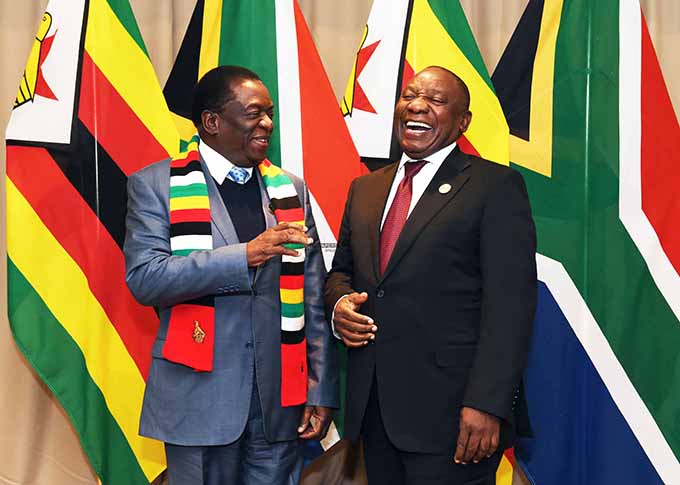 Zimbabwe seems to have gone off the boil lately. Not much has changed, though. The repression, the destitution and general sense of despair are still the lot of ordinary Zimbabweans; but the outrage seems to have died with Robert Mugabe. It is the new normal.
Zimbabwe seems to have gone off the boil lately. Not much has changed, though. The repression, the destitution and general sense of despair are still the lot of ordinary Zimbabweans; but the outrage seems to have died with Robert Mugabe. It is the new normal.
Emmerson Mnangagwa came to power in a strangely circuitous route.
Legend has it that he escaped to Maputo in the dead of night, made his way to Johannesburg from where he was summoned and plonked into power by the generals who had eased the ageing Mugabe from power in a coup d’etat.
The whole thing was accomplished with military precision.
It was quite a time to be alive for Zimbabweans. It almost felt like a second liberation, although ZANU-PF, the party which gifted them the shambles, was still firmly in charge.
They were simply glad to finally witness Mugabe’s humiliating downfall.
Most of those who marched in celebration on that sunny November afternoon were not born when Mugabe took over from white minority rule and famously urged his countrymen to turn swords into ploughshares.
Chimurenga is something they read about in history books. Much water has flowed under the bridge since.
The insults and revelry must have been too painful for Mugabe. But they didn’t care. They didn’t even care how he went. They were just glad to see the back of him. The marchers insisted it was not a military coup d’etat. They were also determined that foreigners should keep their tentacles out of Zimbabwe.
They now had the maturity to take care of their own affairs. And they reserved particular venom for Thabo Mbeki, the former South African President, whose machinations they believed had kept them under Mugabe’s repressive thumb for much longer than was necessary.
In those heady days, nobody was prepared to look in the mirror.
They had been able to remodel themselves, or even con their constituencies to believe they represented a new order
A few months later Mnangagwa was standing in the snow alongside Cyril Ramaphosa at the World Economic Forum in Davos. With scarves emblazoned with the colours of their respective countries hanging from their necks, the two looked like brothers. They smiled from ear to ear.
The future looked bright. In fact, their route to power had followed a similar path. They had both replaced very unpopular leaders who had been removed by unconventional means. And they had both been eager participants in the delinquency of their predecessors.
But, remarkably, they had been able to remodel themselves, or even con their constituencies to believe they represented a new order.
Continued next page
(170 VIEWS)

